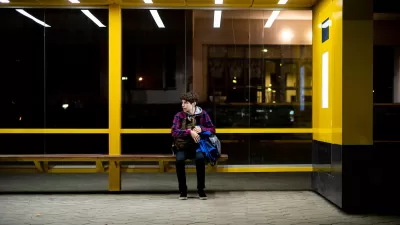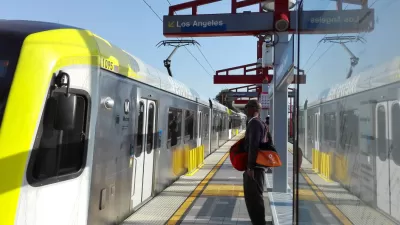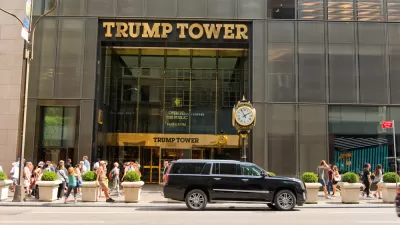Imagine if the federal government treated road safety as seriously as it does transit safety.

A satirical post by Daniel Hertz takes an April Fools approach by reporting a fabricated reality where the federal government takes seriously the dangerous conditions on the nation's roads and highways:
Citing safety concerns, today Secretary of Transportation Anthony Foxx announced he was contemplating the closure of roads to all private vehicles in nearly every city in the country until he could assure the nation’s drivers that they would be safe behind the wheel.
The satire plays on the reactions to safety concerns on transit in places like greater Washington, D.C., where officials have announced an aggressive maintenance plan that will require closing the transit line for regular, long intervals. Secretary Anthony Foxx himself threatened to shutdown D.C. Metro for safety reasons. Hertz points out the obvious discrepancy in the numbers when it comes to accounting for public safety:
Since 2009, 14 Metro riders and employees have died in collisions, derailings, and other incidents. On an annual basis, that translates to about 0.48 fatalities per 100,000 weekday riders.*
However, Secretary Foxx noted that this is exceeded by the fatality rate of car crashes in every single American metropolitan area for which data was compiled in a recent report from the National Highway Traffic Safety Administration.
As is visible in the article's comments, not everyone got the joke, which just goes to show, once again, the dominance of the car as the preferred mode of transportation for most people in the country.
FULL STORY: USDOT to shut down nation’s roads, citing safety concerns

Manufactured Crisis: Losing the Nation’s Largest Source of Unsubsidized Affordable Housing
Manufactured housing communities have long been an affordable housing option for millions of people living in the U.S., but that affordability is disappearing rapidly. How did we get here?

Americans May Be Stuck — But Why?
Americans are moving a lot less than they once did, and that is a problem. While Yoni Applebaum, in his highly-publicized article Stuck, gets the reasons badly wrong, it's still important to ask: why are we moving so much less than before?

Using Old Oil and Gas Wells for Green Energy Storage
Penn State researchers have found that repurposing abandoned oil and gas wells for geothermal-assisted compressed-air energy storage can boost efficiency, reduce environmental risks, and support clean energy and job transitions.

Updating LA’s Tree Rules Could Bring More Shade to Underserved Neighborhoods
A new USC study finds that relaxing Los Angeles’ outdated tree planting guidelines could significantly expand urban tree canopy and reduce shade disparities in lower-income neighborhoods, though infrastructure investments are also needed.

California's Canal Solar Projects Aim to Conserve Resources and Expand Clean Energy
California’s Project Nexus has begun generating electricity from solar panels installed over irrigation canals, with researchers and state agencies exploring statewide expansion to conserve water and boost clean energy production.

HHS Staff Cuts Gut Energy Assistance Program
The full staff of a federal program that distributes heating and cooling assistance for low-income families was laid off, jeopardizing the program’s operations.
Urban Design for Planners 1: Software Tools
This six-course series explores essential urban design concepts using open source software and equips planners with the tools they need to participate fully in the urban design process.
Planning for Universal Design
Learn the tools for implementing Universal Design in planning regulations.
Heyer Gruel & Associates PA
City of Moreno Valley
Institute for Housing and Urban Development Studies (IHS)
City of Grandview
Harvard GSD Executive Education
Salt Lake City
NYU Wagner Graduate School of Public Service
City of Cambridge, Maryland





























